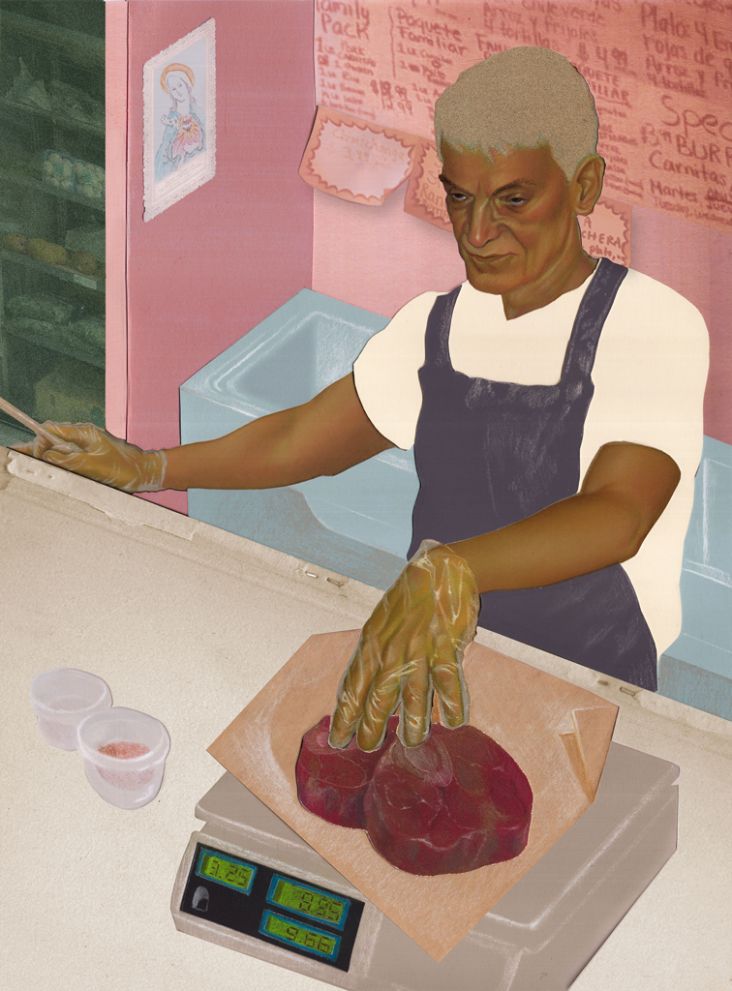Photographer Adrian Fisk on documenting the frontline of Britain's environmental protests of the late '90s
In his historic new photo book, Until The Last Oak Falls, Adrian Fisk presents unseen images from the frontlines of the early British environmental protests of the late 1990s. It's a timely release that reveals how these activists inspired similar movements we see today.
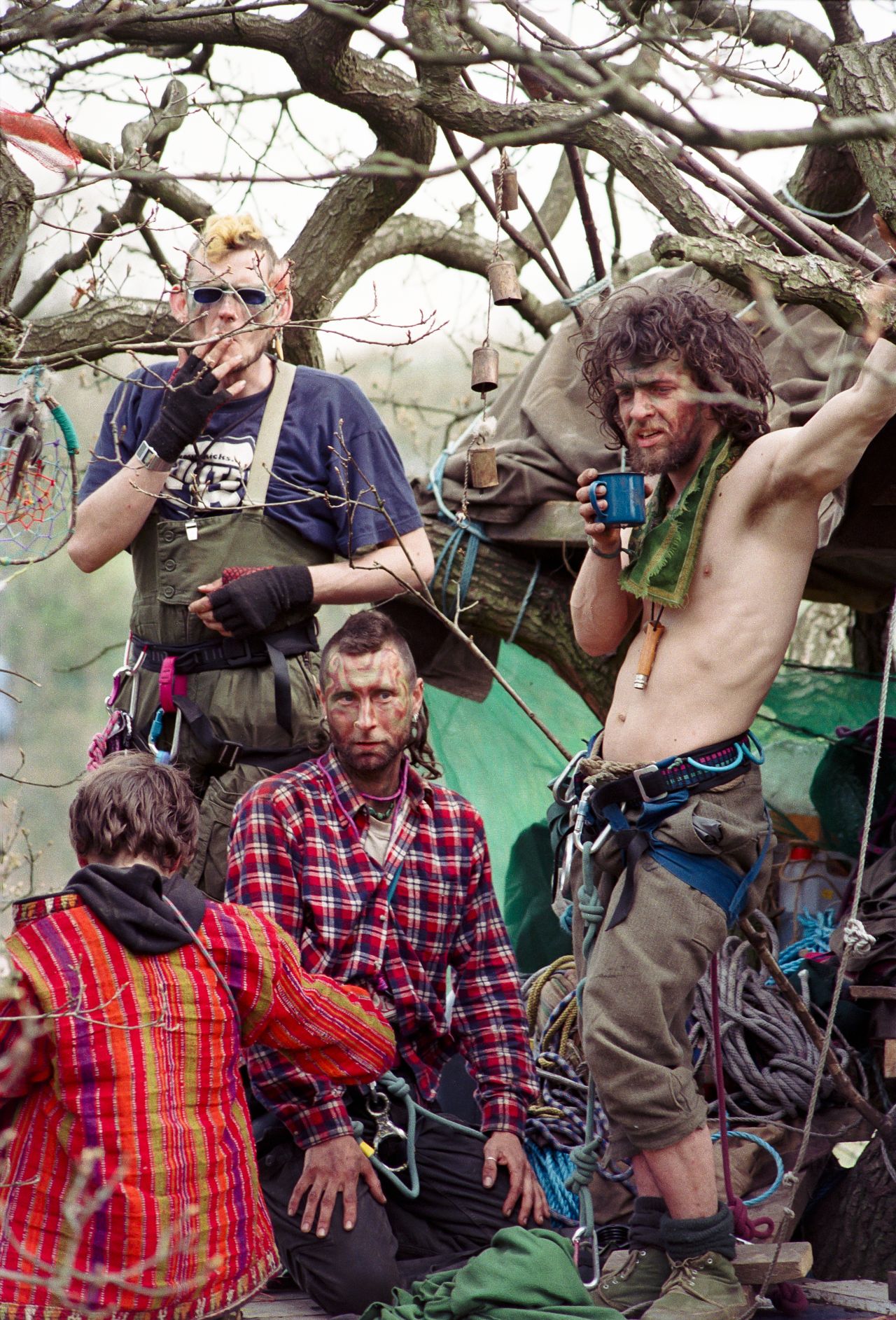
Stanworth Valley M65 Road protest 1995 – A break before the next wave of evictions come in.
Before his wide-ranging work was featured in Vogue, Nat Geo, Vanity Fair, The Economist, and London's Courtauld Institute and Saatchi Gallery, Fisk spent years photographing the UK's many counter-culture scenes. One such movement was the UK's first direct action environmental activism, which kicked off in the early 1990s at Twyford Down, followed by the M11 in east London, Stanworth Valley in 1995, and then "the mother of all road protests" at the Newbury Bypass in '96.
Fisk was in his final year at Blackpool Fylde College when he heard about people living in the trees to stop the M65 from being built. "I was immediately struck by how unusual that was," he tells Creative Boom. "They weren't so far away, so I went to them at Stanworth Valley to witness their road protest. What I saw was unlike anything I'd seen, let alone heard of. There was a collection of treehouses 70 feet high and spread across the wood. So many that it was possible to travel hundreds of metres without touching the ground by using the improvised walkways set up between each treehouse."
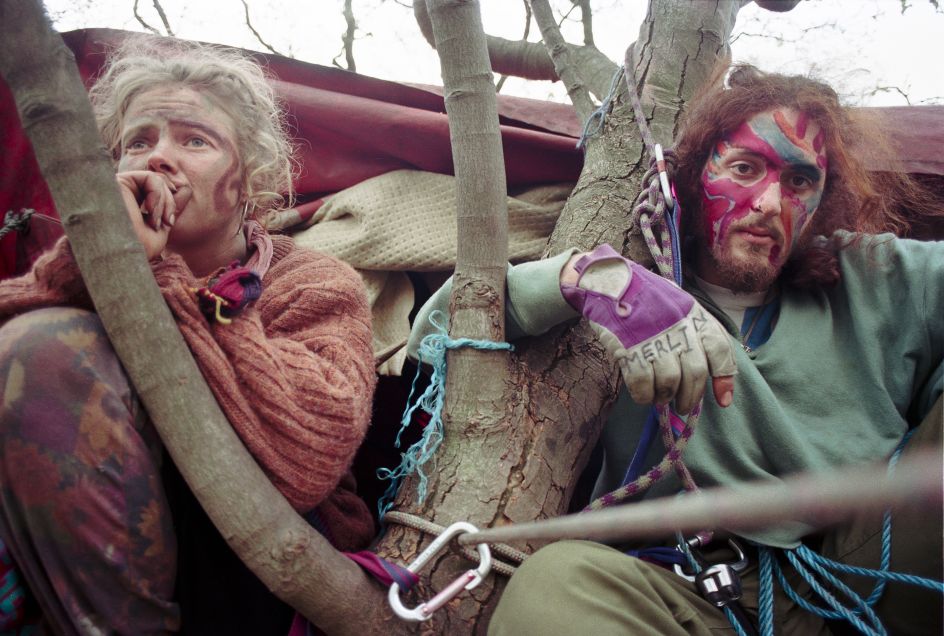
Stanworth Valley M65 Road protest 1995 – A tense and concerning time during the four day eviction.
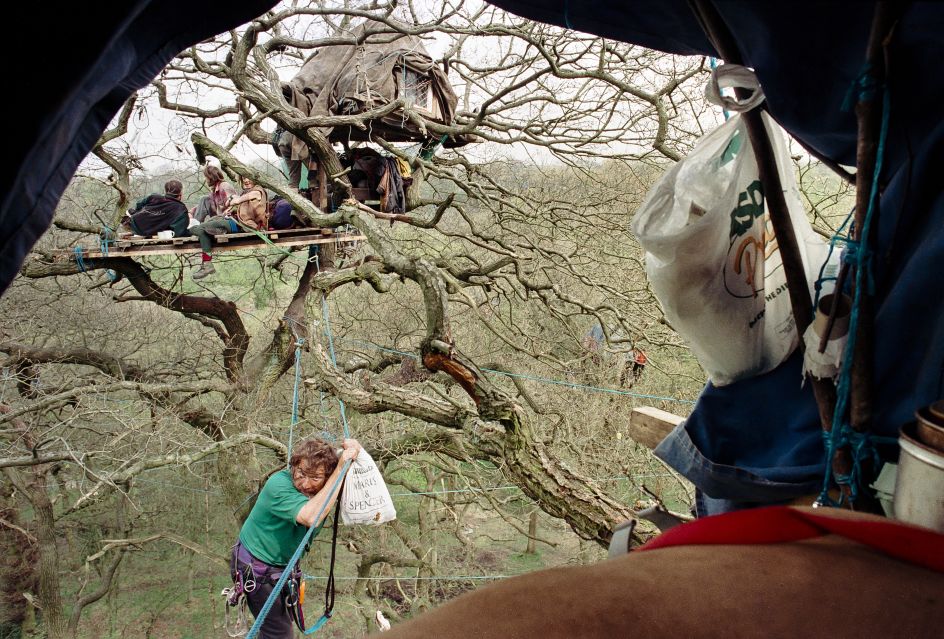
Stanworth Valley M65 Road protest 1995 – A protestor crosses the rope walkway to another treehouse.
Fisk met the activists and felt an immediate connection to their cause. "They were questioning the status quo of our society, saying that consumption isn't everything and in our pursuit of it we're destroying the very fabric of our natural world," he says. "They explained to me there are too many cars in the world pumping out toxic CO2 which in turn was depleting the ozone layer and would lead to melting ice caps. It took me some time to get my head around this. If they were right then Planet Earth would cease to exist in a way that could sustain human life."
Fisk had already become politically active following the Conservative government's Criminal Justice Bill of 1994. "The party had sent a message to many young people that their way of life would not be tolerated, as a result, many of that counter-cultural movement became politicised," Fisk adds. "A short step from there and many of those newly found politicised individuals found themselves at the anti-road protests of the 1990s. They were labelled by the government and media as tree huggers, extremists, crusties, nutcases and scroungers of the state. It's not so different for today's activists."
What's more, having also grown up in the "wilds of Dartmoor", Fisk's relationship to the natural world was already deep and profound: "The very thought of the slow erosion of our beautiful natural world appalled me," he says. "The combination of all these factors meant it was only natural I was drawn to the environmental activists and I was quick to realise my power lay in my camera and I'd do everything I could to fight their cause by documenting it and letting the wider world know."

Newbury Bypass 1996 – An activist prusiks into a tree. Using a climbing technique known as prusiking allowed protestors to climb single ropes up into the trees pulling up the rope behind them much like a drawbridge.
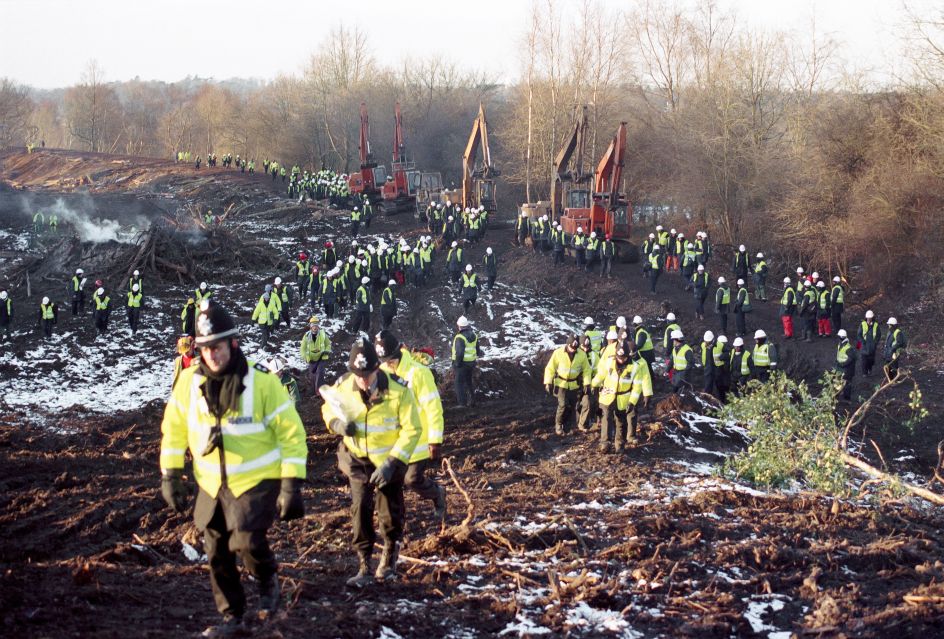
Newbury Bypass 1996 - Much like an army, a line of police and security walk with the diggers in order to ensure activists do not stop them. The overall police and security cost for the entire campaign was £30 million.
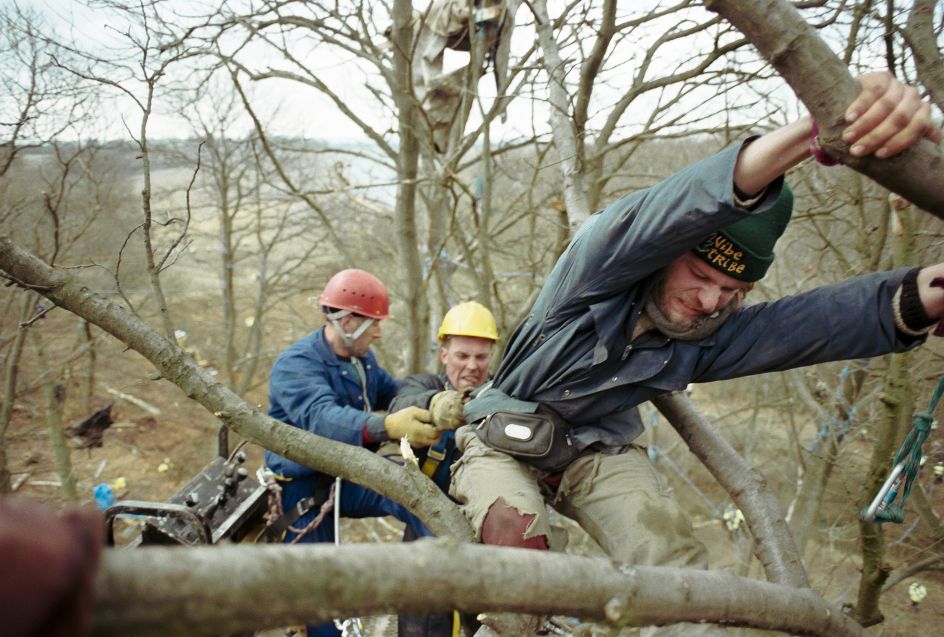
Newbury Bypass 1996 – 60 feet above the ground a man desperately attempts to hang on to the tree in order to protect it from being cut down whilst physically being pulled backwards by the Sheriff of Newbury’s eviction men.
Some of those photographs of that time are now being brought together in a new photo book, Until The Last Oak Falls, which is currently seeking support on Kickstarter. Powerful and compelling, the images are presented in sections, one for each protest from 1995 to 1999, and together, act as a celebration of the history of activism and an inspiration for future generations of fighters. They sit alongside an inspirational introduction by author Jay Griffiths as well as ephemera related to the many protests depicted.
As you'd expect, the book itself is made as environmentally sensitive and carbon neutral as possible, with its cover and spine created using vegan, biodegradable, and compostable materials. The book is designed by London Centre for Book Arts studio member, Zoë Bather. And for every pledge made on Kickstarter, Fisk will also make a small donation to The Woodland Trust. The campaign will run through to 7 November, the midway point of this year's COP26 climate change conference.
How does Fisk feel the movement has changed since the 1990s? "It's more organised though no less passionate," he says. "To a certain degree, Reclaim The Streets laid itself open to accusations of drug and alcohol misuse during their carnivalesque street protests which in turn meant those opposed to their demonstrations could more easily attack them. Extinction Rebellion operated a policy of no alcohol or drugs, which was smart. The movement now is so much bigger with many cities and rural areas not just across the UK as also globally having XR chapters and various other environmental organisations."
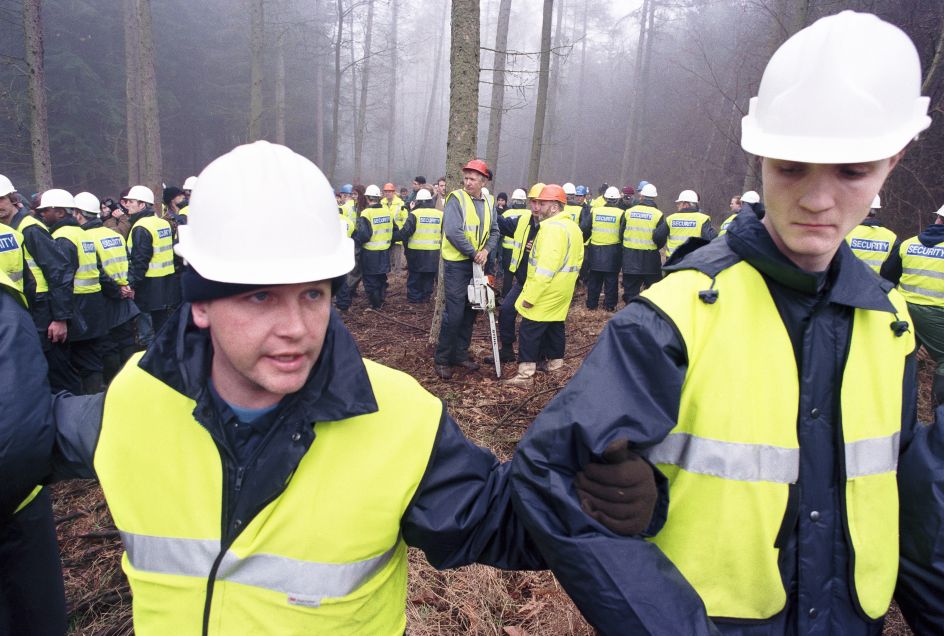
Newbury Bypass 1996 - 800 security guards were needed at a cost of £25 million to the state. It became extremely difficult for the chainsaw men to carry out their work.
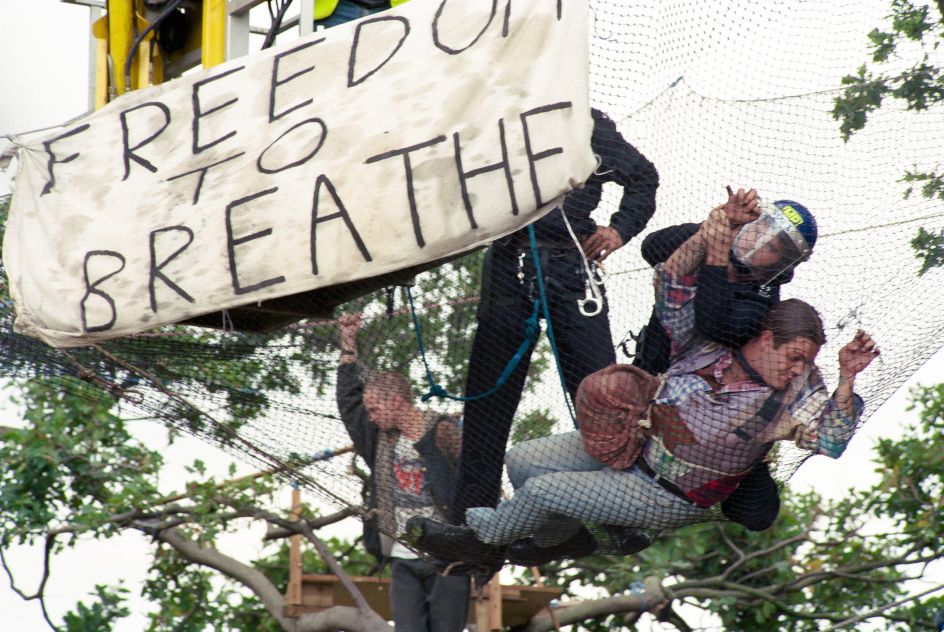
M11 road protest. Leytonstone 1995.
What Fisk believes has mostly changed is the type of people present at these protests. "Literally everyone is represented from professor, doctor and teacher to artist, farmer, student and plumber. And each day the movement grows as the realisation of what we're facing becomes a reality," he says. "Twenty-five years ago, when people were shouting from the treetops that we had to stop this madness they were accused of being nutcases and a scourge on the state. Since the Industrial Revolution in 1751, half of all the CO2 emitted has happened in 25 years exactly since those environmental activists were saying stop! You have to ask yourself, who exactly are the nutcases and extremists!"
It's for that reason that Fisk has named his book, Until The Last Oak Falls. "It reminds us that we need to listen to these activists," he says. "That and to inspire the current generation of environmental campaigners in showing them the legacy they follow."
As Fisk reflects on that era, when Daniel Marc Hooper, otherwise known as 'Swampy', was one of many making headlines and raising the issue of climate change, he recalls the bravery of such activists. "Defending trees is dangerous work as everything is at a great height with the state determined to do everything it can to remove you from the trees," he says. "I remember one cold winter morning during Newbury Bypass with snow lying around, the state came in from all angles with hundreds of security guards and police surrounding the area. The eviction began in an attempt to get the protestors out."
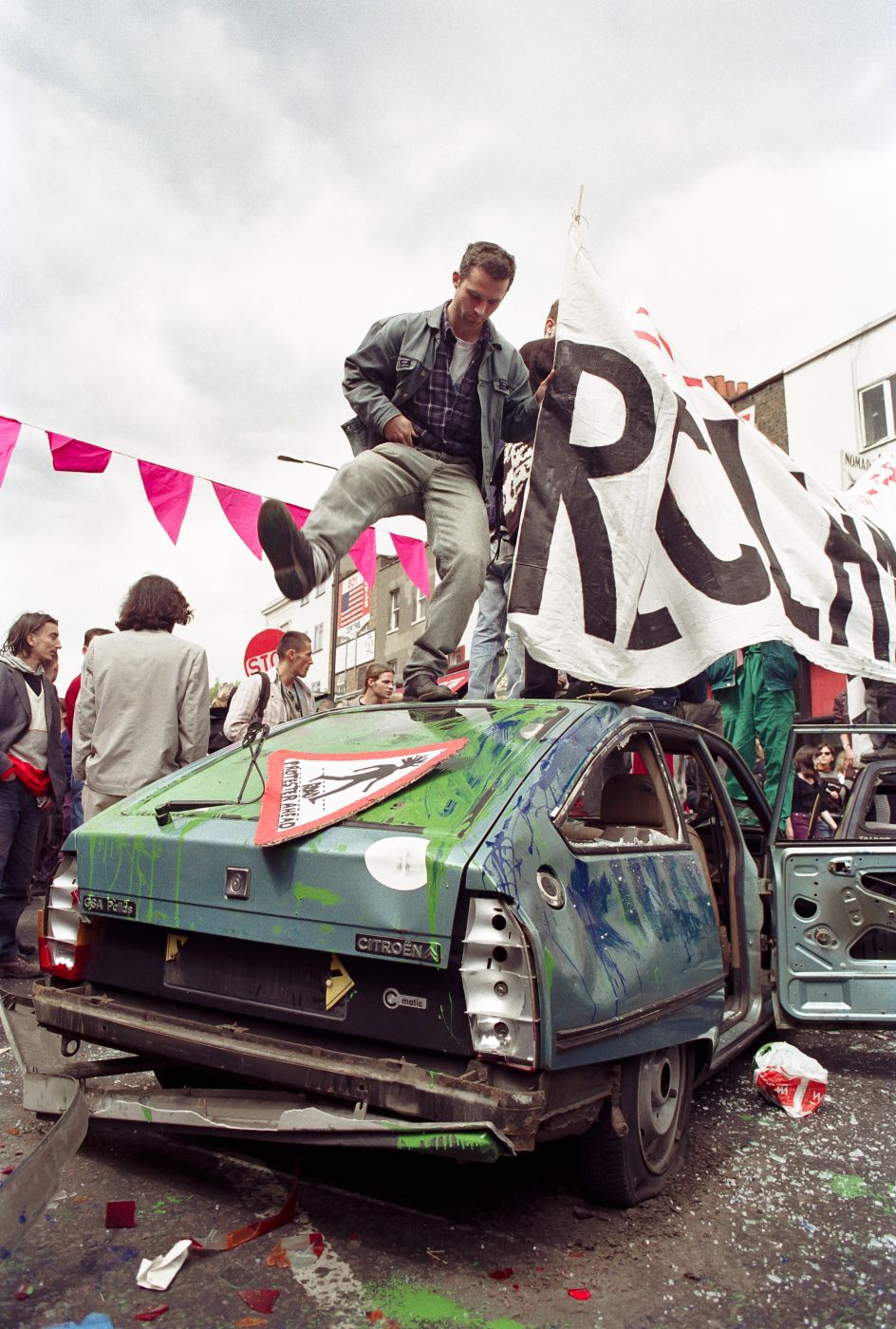
Reclaim the Streets Camden 1995 – After a staged car crash with faux road rage members of RTS get creative with the cars.
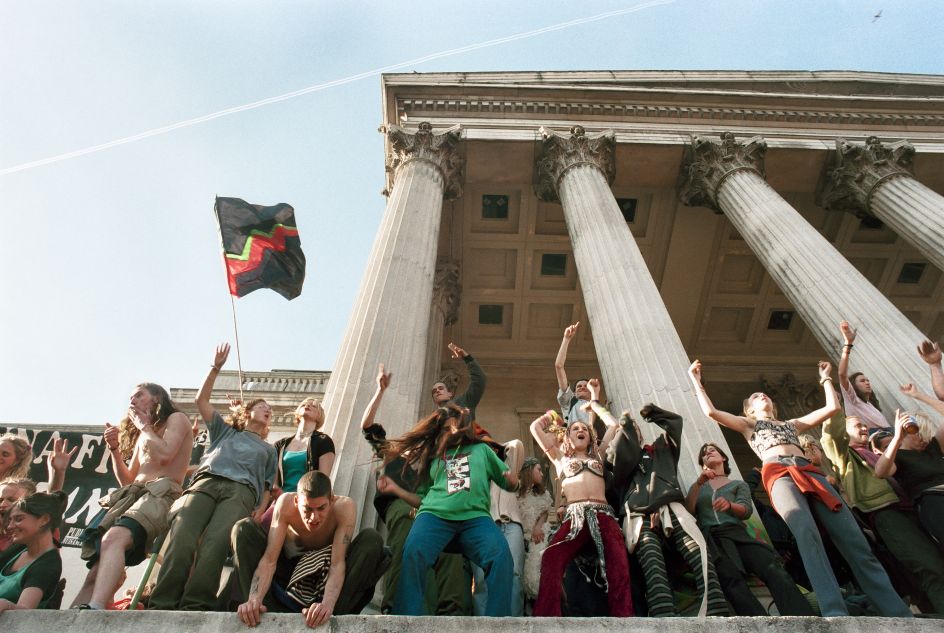
Reclaim the Streets. Trafalgar Square 1997 - Environmental protestors dance in front of the National Gallery during what became one of the largest illegal gatherings in its history.
He continues: "After some time one man, determined to do everything he could to defend the tree he'd been living in for many months climbed far out onto a branch. He was in a very precarious and dangerous position with his arms wrapped around the branch. The chainsaws continued their incessant mechanical scream far below, with each tree felled deliberately being cut to fall closer and closer to where the poor man desperately clung onto the branch. You know things are about to get worse when the police turn around so they can't witness anything. I remember standing there beginning to think I was about to see my first environmental protestor death with people all around screaming for the chainsaws to stop.
"As if by some miracle he hung on until he was removed by the crane. A number of people who fought the Newbury Bypass suffered from PTSD for many months afterwards. It was brutal, nasty and the coldest winter in recent memory. And to think those environmental activists were right all along. If only we had listened to them."
Adrian Fisk's Until The Last Oak Falls is on Kickstarter until 7 November 2021. Pledge your support if you want to see the title in print.
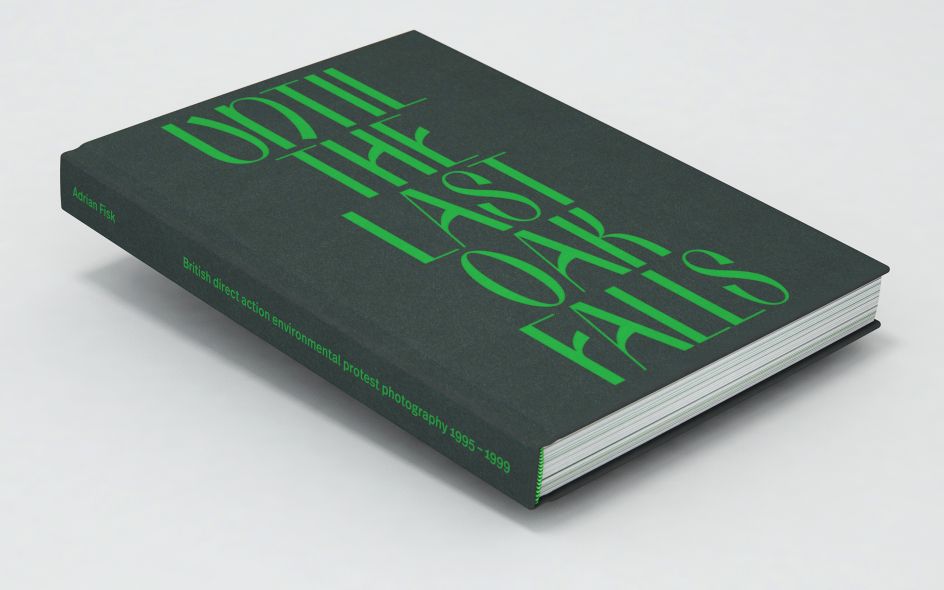
Until The Last Oak Falls by Adrian Fisk




 by Tüpokompanii](https://www.creativeboom.com/upload/articles/58/58684538770fb5b428dc1882f7a732f153500153_732.jpg)

 using <a href="https://www.ohnotype.co/fonts/obviously" target="_blank">Obviously</a> by Oh No Type Co., Art Director, Brand & Creative—Spotify](https://www.creativeboom.com/upload/articles/6e/6ed31eddc26fa563f213fc76d6993dab9231ffe4_732.jpg)









